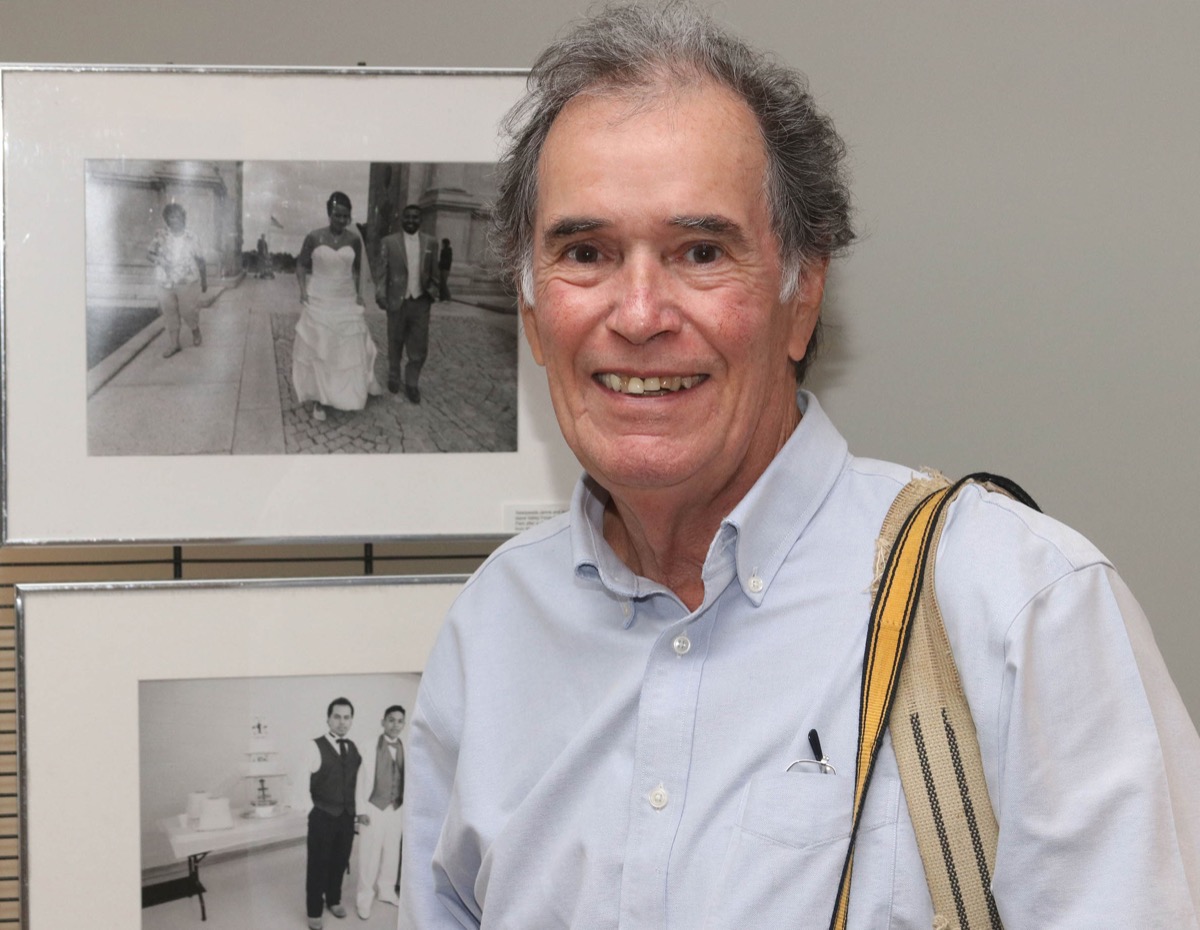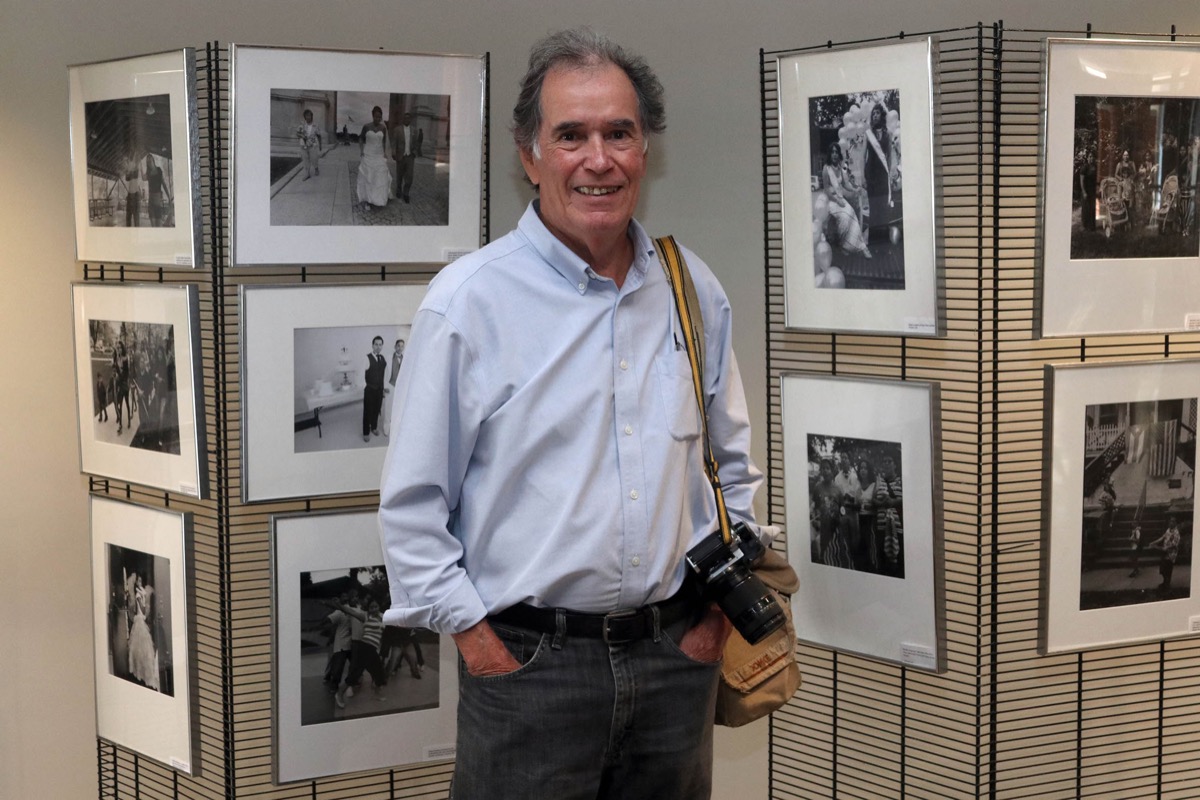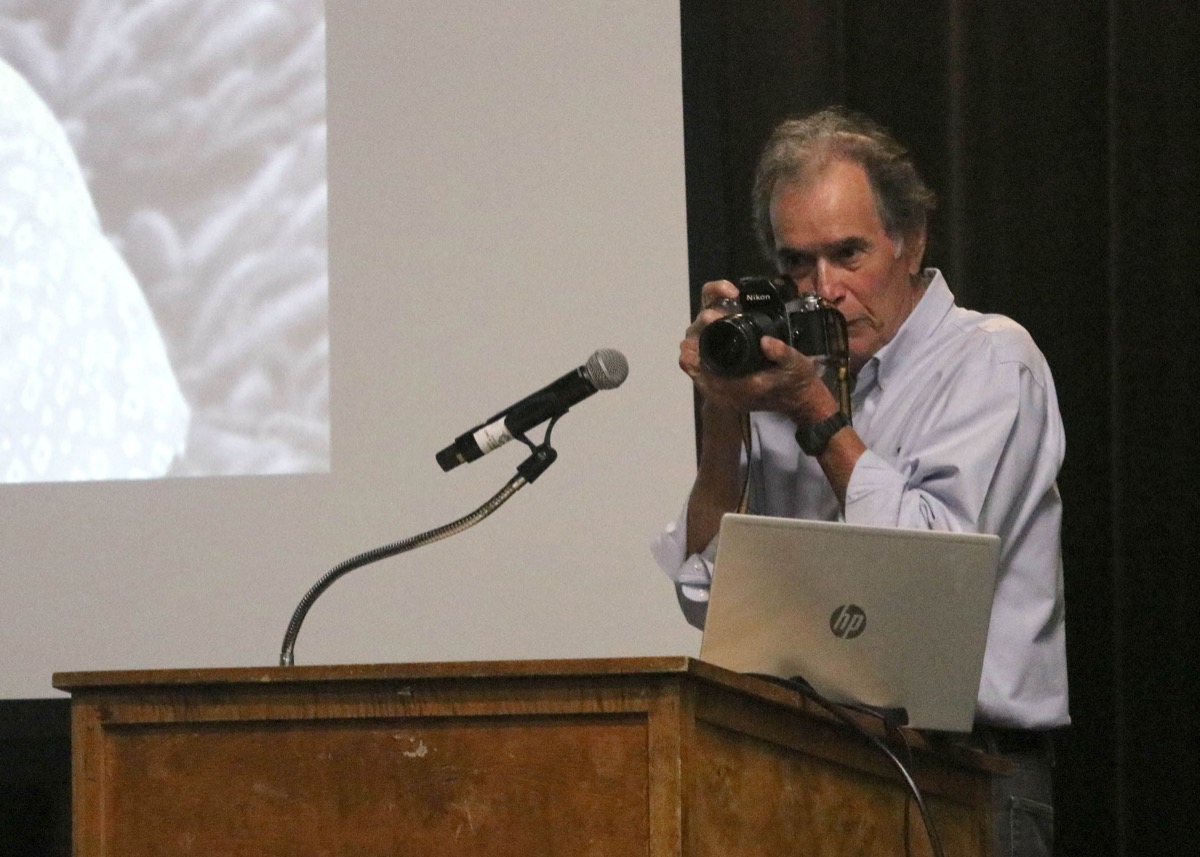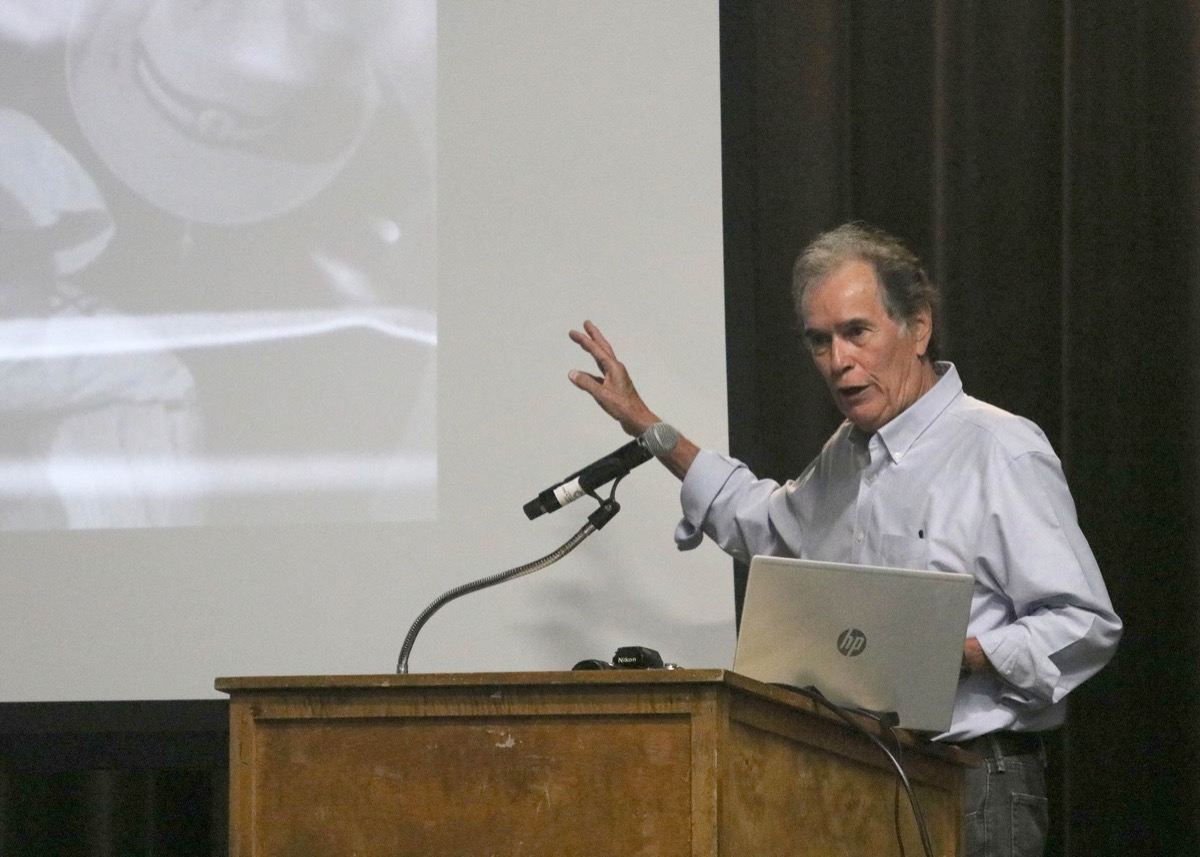
Photographer Jose Galvez visits Central Carolina Community College to speak of his life and his work, which includes being part of a team that won the 1984 Pulitzer Prize for Public Service.

SANFORD, N.C. - When photographer Jose Galvez won the Pulitzer Prize almost 40 years ago, his work capturing Latino life introduced Americans to a culture that was not well understood -- even in many places in the Southwest, not far from the Mexico border.
Now, he's standing on stage at the Dennis A. Wicker Civic & Conference Center Auditorium on Oct. 3 talking to a room packed with Central Carolina Community College students. Many speak Spanish at home. They trace their ancestry to Mexico and countries throughout Latin America. And this state's vibrant Latino community has attracted him to Durham, where he now lives and remains focused on interpreting Latino culture and daily life.
Clearly, times have changed.
"I think it's important to highlight the achievements and contributions of the Latino community everywhere," Galvez said, pointing to the fact that more than one out of every five people living in the county surrounding Sanford are Latino. "In today's climate, we need to keep driving home the point that the Latino community is an important part of our whole national agenda."
Galvez was invited to help celebrate Hispanic Heritage Month by CCCC's Art Career Community and the Academic and Cultural Enrichment Series, an annual initiative providing free access to lectures, arts performances, workshops and other special events on the college campus and at other local venues.
For most of his one-hour lecture, Galvez spoke in a dark auditorium while his photos -- all black-and-white and captured on film -- were projected on a huge screen. Images began with portraits of a farmer in West Jefferson who crossed illegally into Texas as a teenager to work. After receiving amnesty in the late 1980s and moving to the Blue Ridge Mountains to help grow Christmas trees, he became manager of the migrant workers and even established his own growing operation.
Galvez then shifted the narrative to his own life experience as the projected photos became broader in their theme and time, but always capturing the Latino experience in America.
He was just 10 years old, peddling shoeshines and tamales in Tucson, Ariz., when he stumbled into journalism. While shining shoes one day at the Arizona Daily Star, he became intrigued by the news business, eventually using a pawn shop camera and guidance from some teachers and reporters to dip his toe into journalism. After earning his journalism degree from the University of Arizona, he became a staff photographer at the Star, working general assignments, but always keeping a sharp focus on life in the barrios around his hometown.
In the summer of 1983, after moving to the Los Angeles Times, Galvez became part of a reporting team assembled from the newspaper's Latino reporters, photographers and editors to closely examine Southern California's Latino community. Their series, simply titled "Latinos," was a groundbreaking work that shattered long-held stereotypes and reframed the region's Latino culture -- everything from art and politics to work and family.
"The Latino community wasn't reported on because they felt it wasn't of much interest to their readers," Galvez said in a conversation just before the lecture began. "We were trying to change that perception."
And apparently they did. The series was so influential that the reporting team was awarded the 1984 Pulitzer Prize for Public Service, the first Mexican-Americans to win the prize.
Now, Galvez says he's focused on getting his work into museum and institutional collections. About a decade ago, the North Carolina Museum of History created a solo exhibition of his photographs, "Al Norte al Norte: Latino Life in North Carolina." It was the first time the museum ever exhibited a body of work focusing on the state's Latino community and the first time they published bilingual captions. His photographs also have been picked up by the Smithsonian and he's in conversations now with LACMA, the Los Angeles County Museum of Art, to have some of his work added to their collection.
His goal is to help people see Latino communities beyond the familiar stereotypes of farm workers and roof contractors. That is dignified and essential work, he said, but the community is much broader. "We are educators," he said. "We are business people. I want people to see this work as being of historical importance."

Photographer Jose Galvez visits Central Carolina Community College to speak of his life and his work, which includes being part of a team that won the 1984 Pulitzer Prize for Public Service.

Photographer Jose Galvez stands in front of his work.

Photographer Jose Galvez looking through camera.

Photographer Jose Galvez visits Central Carolina Community College to speak of his life and his work.